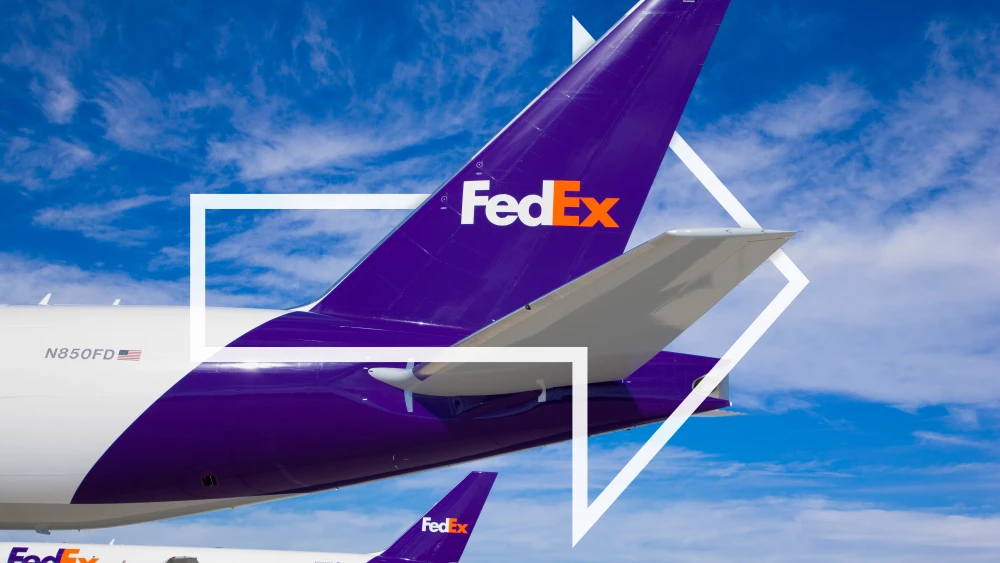FedEx (NYSE: FDX) announced an agreement with Neste, the world’s leading producer of sustainable aviation fuel (SAF) and renewable diesel, securing more than three million gallons of blended sustainable aviation fuel (SAF) for delivery at Los Angeles International Airport (LAX) to the world’s largest express cargo airline. Through this agreement, FedEx has purchased blended fuel from Neste, to include a minimum of 30% neat Neste MY Sustainable Aviation Fuel. As used in its blended form, the fuel will account for roughly a fifth of all jet fuel consumed annually by FedEx at LAX* and is the largest SAF purchase executed by a U.S. cargo airline at LAX to-date. Delivery of the fuel began earlier this month and will continue over the next year.
“Procuring SAF is an important component of our aviation emissions-reduction strategy in the coming years, and we are pleased to have executed a deal with Neste to begin using this fuel in our air operations,” said Karen Blanks Ellis, chief sustainability officer and vice president of Environmental Affairs, FedEx. “Our aviation network represents the largest amount of FedEx fuel use globally and, as a result, is our biggest opportunity to drive down emissions. As we work toward our goal of carbon-neural operations by 2040, we need the SAF market to continue to grow to meet industry demand.”
“As the world’s preeminent express transportation company, our initial U.S. deployment of this fuel advances our sustainability goals and bolsters the aviation industry’s efforts to source and use more SAF,” said Richard Smith, chief operating officer, International, and chief executive officer, Airline, FedEx. “While we know further growth of the SAF market is needed—alongside other innovations—we are proud to celebrate this milestone with our world-class air network.”
“Neste is excited to work with FedEx and support their ambitious goal of reaching carbon-neutral operations by 2040 with our SAF. Recognizing the important role of air cargo in the global economy, FedEx is demonstrating how this industry can leverage available lower-emission solutions like SAF to reduce its environmental impact. We look forward to further strengthening our cooperation,” says Carl Nyberg, Senior Vice President, Commercial, Renewable Products at Neste.
This fuel purchase by FedEx builds upon years of the company’s efforts to co-create innovative sustainable aviation technologies with other industry leaders, including the ecoDemonstrator flight-test program with Boeing—the world’s first commercial airplane flight using 100% SAF in both engines that was conducted in 2018. In addition to the procurement of SAF, FedEx is pursuing multiple avenues to improve efficiency and reduce fuel consumption in its aviation operations overall, including aircraft fleet modernization, fuel conservation initiatives, and flight planning optimization. Collectively, fleet modernization and fuel saving efforts enabled FedEx in fiscal year 2024 to successfully achieve its goal of a 30% reduction in aviation emissions intensity from a 2005 baseline. FedEx set its first aviation emissions intensity reduction goals back in 2008.
Sustainable aviation fuel, explained
Sustainable aviation fuel is a more sustainable alternative to conventional, fossil-based jet fuel, largely driven by lower emissions from the feedstocks used in the fuel production process. Neat SAF is blended with conventional jet fuel before use and is considered a “drop-in” fuel, meaning it works within existing aircraft engines and fueling infrastructure without any equipment updates.
Neste MY Sustainable Aviation Fuel reduces greenhouse gas emissions by up to 80%** over the fuel’s life cycle, compared to using conventional jet fuel. Neste SAF is made from 100% renewable waste and residue raw materials, such as used cooking oil and animal fat waste.
While SAF production continues to grow in the U.S. and internationally, SAF accounted for less than 1% of all global jet fuel production in 2024. Amid the need for greater alternative fuel availability and accessibility for all airlines, FedEx will continue to advocate for expanded production and highlight SAF’s potential environmental and economic benefits.
Learn more about the FedEx sustainability strategy and the company’s goal of carbon neutral global operations by 2040 here: https://www.fedex.com/en-us/sustainability/our-approach.html
* Based on FY25 fuel use forecasts
** When used in neat form (i.e. unblended) and calculated with established life cycle assessment (LCA) methodologies, such as CORSIA methodology



